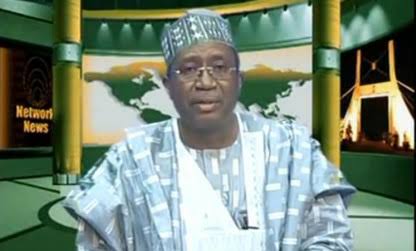
The Nigerian Economic Group Summit says Nigeria’s weak manufacturing is a major factor fuelling shortage of foreign exchange
The NESG Senior Economist, Dr Wilson Erumebor, disclosed this in a recent paper published by Foresights Africa.
The report, titled, “Nigeria in 2023: Bridging the productivity gap and building economic resilience’’, stated that the last seven years for the country had been plagued with hardship especially after battling two economic recessions.
He added, “In the last seven years, there have been a shift of economic activity towards agriculture and a slowdown of the manufacturing sector. Part of the problem facing the economy is the neglect of the manufacturing sector.
“Essentially, Nigeria Is not producing enough, for both local consumption and export. The consequences of having a weak manufacturing base for a country with such a large population are evident in its foreign exchange shortages, limited number of jobs created to accommodate workforce entrants, and an import bill that can hardly be met (nor sustained) by current export earnings.”
In the report, explained that the unemployment and underemployment rates increased to an all-time high of 56.1 percent in 2020.
Erumebor noted that “90 percent of workers are employed in sectors with low levels of productivity—agriculture and non tradable services.
“This means that the kind of jobs needed to generate income growth and lift many Nigerians out of poverty are not available in large numbers.”
He urged the incoming administration, to work with stakeholders, and develop an agenda for economic and social inclusion.
“At the heart of such an agenda must be improving the lives of the average Nigerian. This agenda must also include a practical strategy on how to structurally transform the economy, moving labor and economic resources from low productivity sectors to high productivity sectors.”
The senior economist further posited the need to design and implement national skills programmes aimed at upskilling young Nigerians, to ensure many more embrace digital skills and capabilities.
“At the middle of the productivity ladder sits manufacturing. The sector has a much higher productivity level than agriculture and can accommodate, in large numbers, the kind of labour that is abundant in the country. Nigeria’s rising population (which is projected to reach N428m by 2050), the existence of mineral resources, and the adoption of a single market in Africa—the African Continental Free Trade Area —present a case for why manufacturing would thrive in Nigeria.”
Erumrbor highlighted the need for the incoming government to address the burgeoning infrastructure deficit and inadequate power supply, which limit the competitiveness of the manufacturing sector.
Hammering on a clear cut strategy to develop an industrial policy, he explained that supporting the scale, efficiency, and competitiveness of local firms within the manufacturing sector was vital to building economic resilience against vulnerability and future shocks.
“Such policies must be integrated with Nigeria’s AfCFTA strategy and support transition of small-scale firms that are often the drivers of job creation in the country.”





